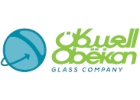The company has partnered with Redwave to complete a turnkey plant expansion, which began this September, as well as installing more efficient equipment.
Throughput at the recycling plant is expected to increase by an average of 50% over the year, and the project has created 12 full-time jobs.
Devices such as additional optical sorters, vibratory feeder conveyers, screening machines and JCB telehandlers have been installed. As a result, further processing stages using this equipment have been introduced to improve quality and reduce waste.
Beatson Clark has also installed a 300m2 canopy to cover in-feed material and protect it from inclement weather conditions to improve processing during the winter.
The new equipment and the additional inspection stages have reduced the false rejects of glass (which were removed with ceramics, stones and pottery) by over 50%. This has increased the plant’s efficiency by creating a more sustainable process, with more waste glass being truly recycled within the company’s furnaces opposed to going to aggregate for re-use.
“Our new, improved capability for resorting recycled glass at source will reduce the transport miles generated through the supply chain and will give us greater control of the quality of our cullet.”
Colin Saysell, Logistics and Production Planning Manager at Beatson Clark
The post-consumer recycled content rates for containers manufactured by Beatson Clark are 30% for white flint and 45% for amber glass. Its recycling plant used to generate on approx. 50% of this cullet but following these investments it now generates over 75% of the cullet.
“We are now seeing an increased output of both white flint glass cullet and gramber* thanks to easier automated sorting and improvements in the colour sorting process.”
Patrick Pagdin, Recycling Manager at Beatson Clark
Glass comes into Beatson Clark’s recycling plant from the hospitality sector and local authority kerbside collections of domestic glass.

























